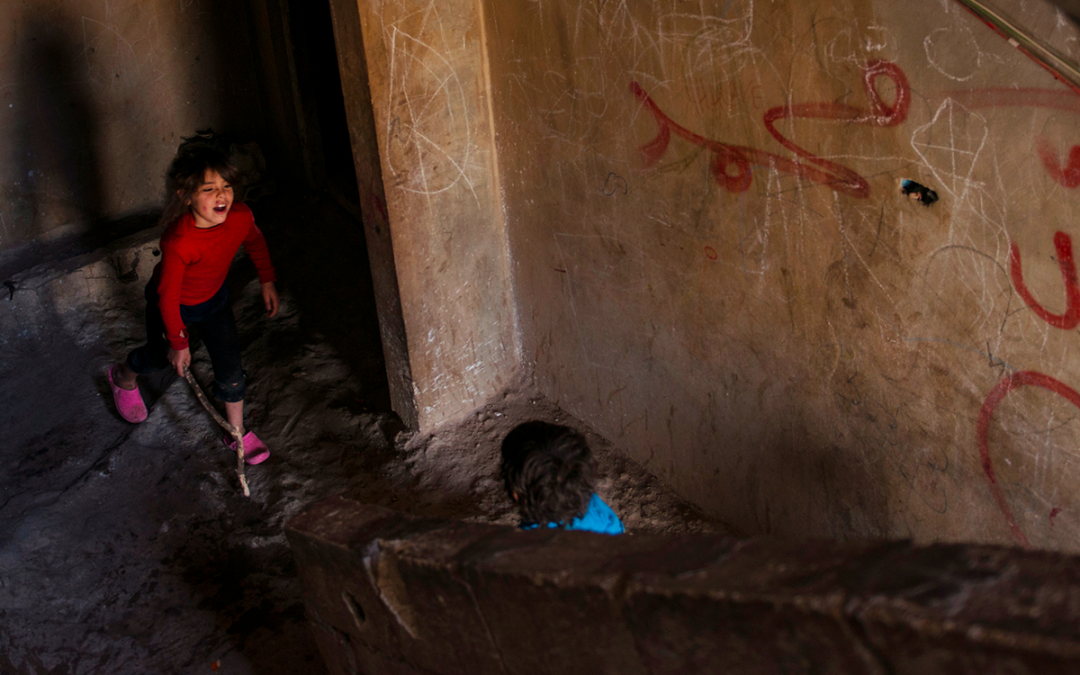Bracing myself for the long haul 17-hour flight to San Francisco from Beirut, I finally have a moment of pause to reflect on the magnitude of the Syria crisis. More than 4 million refugees have fled the conflict in Syria to neighboring countries. That includes 1.2 million Syrians who have sought refuge in Lebanon, a tiny country of only 4 million persons. There are no formal camps in Lebanon, which means that one of the greatest needs for refugees is the challenge of finding safe and adequate shelter.
Challenge of finding adequate and affordable housing
Expecting a country like Lebanon – or any country for that matter – to house a population increase of nearly one-third would be beyond anyone’s reasonable imagination. At the same time, the shelter needs of refugees are also beyond the response capacity of the international humanitarian community – despite interventions ranging from rehabilitation, weatherproofing to site improvement.
Instead, refugees must deal with the uncertain market. With the crisis now past its third year, most refugees are not staying with hosts free-of-charge. Instead, 81% of refugees rent their accommodation, in a housing market where demand for affordable and decent shelter often exceeds the available supply. This leads to new housing options in non-traditional settings, such as by erecting tents on vacant lands, renting out garages or worksites or occupying unfinished buildings.
Refugees are forced to navigate their way through a housing market that is still untested and where pricing and competition have not yet stabilized. One recent assessment found that for 41% of Syrians in Lebanon, affordable shelter is not adequate and adequate shelter is simply not affordable. A recent shelter survey confirmed that more refugees live in insecure accommodation (55%) than in secure accommodation, an increase of 15% compared to last year.
From Beirut to San Francisco
With these thoughts swirling in my mind, a trip to San Francisco representing UNHCR became a golden opportunity to explore whether public-private partnerships might be able to help meet the needs of refugees in the Syria crisis. As part of the World Humanitarian Summit, the UN had organized a Business Consultation on Innovation to identify ways to maximize the power of innovation and technology through greater public-private partnerships in emergencies. The event was being held in San Francisco, with participants from leading Bay Area and Silicon Valley companies, including Google, Facebook, Yahoo!, LinkedIn, Cisco, Visa, and many others. The list of companies was impressive, not only because of their brand names but because of their global reach involving not just millions, but billions of people around the world.
Even better was that the consultations were being hosted by Airbnb, a company whose innovative business model, which connects hosts wishing to rent their property short-term with guests looking for a nice place to stay, had led to astronomical growth and expansion around the world. The opportunities for synergy and innovation were staring at me in the face.
Refugees need a better way to find adequate and affordable housing, including information on facilities available, neighborhood safety and pricing, in order to make their most informed rental choice.
At the same time, hosts with property need an easier way to find prospective guests – particularly with non-traditional types of property – as well as an incentive to provide the best value for money.
Arriving at Airbnb’s headquarters, a warehouse in San Francisco’s SoMa neighborhood converted into a hip yet eclectic design space that oozes openness, collaboration and creativity, I could not help but feel optimistic about the potentials for partnering in innovation. Discussions during the consultations were optimistic and hopeful, yet realistic regarding the challenge of finding a common approach for private sector companies to apply their core business skills, assets, and comparative advantages to make a difference in the humanitarian sector. I urged the participants to take up this challenge to push the spectrum of public-private partnership from the first stage of charitable giving, to the next stage of collaborative problem-solving, and finally to the alignment of interests, which involves sustainable market-based solutions that simultaneously address humanitarian needs.
Prototyping the innovation process
UNHCR Innovation Fellows are taught to prototype, prototype and… prototype. What I’m learning is that prototyping also applies to finding the right models of collaboration and partnership, which can, in turn, lead to more innovation. Over a bustling lunch table in San Francisco, I began a conversation and thought process between Airbnb and UNHCR — two very different organizations, but both willing and interested in finding potential synergies and innovation – around an issue that could and should bring us together.
Since that time, we have been exploring (and prototyping) possibilities for partnership around the issue of helping Syrian refugees in Lebanon better find affordable and adequate housing. There are many unknowns still to be explored, regarding the market dynamics in Lebanon, the core business model of Airbnb and exposure of private sector companies to real and tangible protection concerns of refugees. But the process has begun and the potential for partnership and innovation remains large.
Meanwhile back in Lebanon, my low fidelity prototyping continues. I recently sat with a group of refugees living in tents in the Bekaa, walking them through a mock-up mobile app to test their interest in providing online feedback on their housing experience.
To my delight, even the 75-year old grandfather, who I am certain does not own a smartphone, smiled and pointed, saying “This is exactly what we need.”
While I continue to prototype the potential global collaboration with Airbnb, for that grandfather in the Bekaa looking for a better home right now, even a homegrown web app could make all the difference.
Photo credit: UNHCR/ Lynsey Addario
We’re always looking for great stories, ideas, and opinions on innovations that are led by or create impact for refugees. If you have one to share with us send us an email at [email protected]
If you’d like to repost this article on your website, please see our reposting policy.

